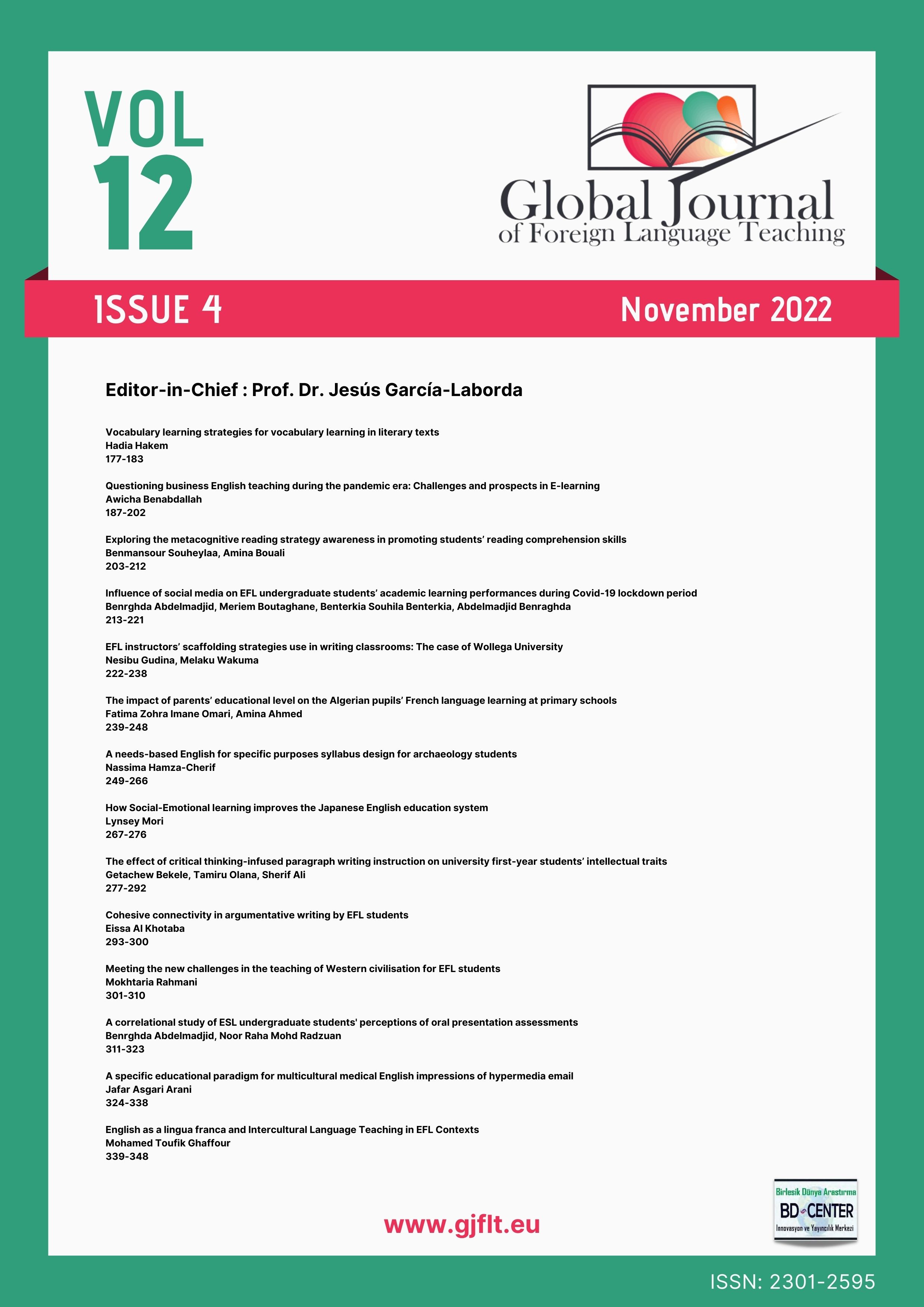Exploring the metacognitive reading strategy awareness in promoting students’ reading comprehension skills
Main Article Content
Abstract
The fundamental role of reading comprehension is to promote a successful learning process and to enhance some Meta-cognitive reading strategies that are likely to raise learners' awareness in mainstream education. In this vein, the present paper endeavors to explore the effect of implementing a Metacognitive Reading Strategy on EFL students’ reading comprehension skills. To fulfill this study, the researchers opted for a group of 43 EFL students enrolled in the University of Oran2 as a sampling of this research to answer a structured questionnaire employed to measure students’ Metacognitive reading strategies. The results have shown that EFL students chiefly use problem-solving skills, global reading strategies, and support reading strategies to prop up their reading comprehension. Significant skill, cognitive and Metacognitive strategies form an ideal complement that helps to stimulate reading skills at higher-level complexity and L2 proficiency in general.
Keywords: EFL; Meta-cognitive; problem-solving skills; reading comprehension; reading strategies.
Downloads
Article Details

This work is licensed under a Creative Commons Attribution 4.0 International License.
Authors who publish with this journal agree to the following terms:- Authors retain copyright and grant the journal right of first publication with the work simultaneously licensed under a Creative Commons Attribution License that allows others to share the work with an acknowledgement of the work's authorship and initial publication in this journal.
- Authors are able to enter into separate, additional contractual arrangements for the non-exclusive distribution of the journal's published version of the work (e.g., post it to an institutional repository or publish it in a book), with an acknowledgement of its initial publication in this journal.
- Authors are permitted and encouraged to post their work online (e.g., in institutional repositories or on their website) prior to and during the submission process, as it can lead to productive exchanges, as well as earlier and greater citation of published work (SeeThe Effect of Open Access).
